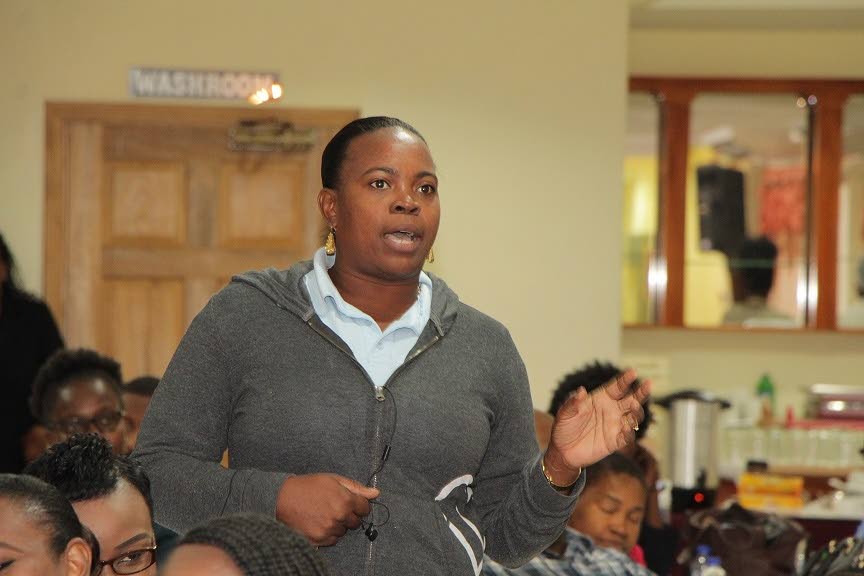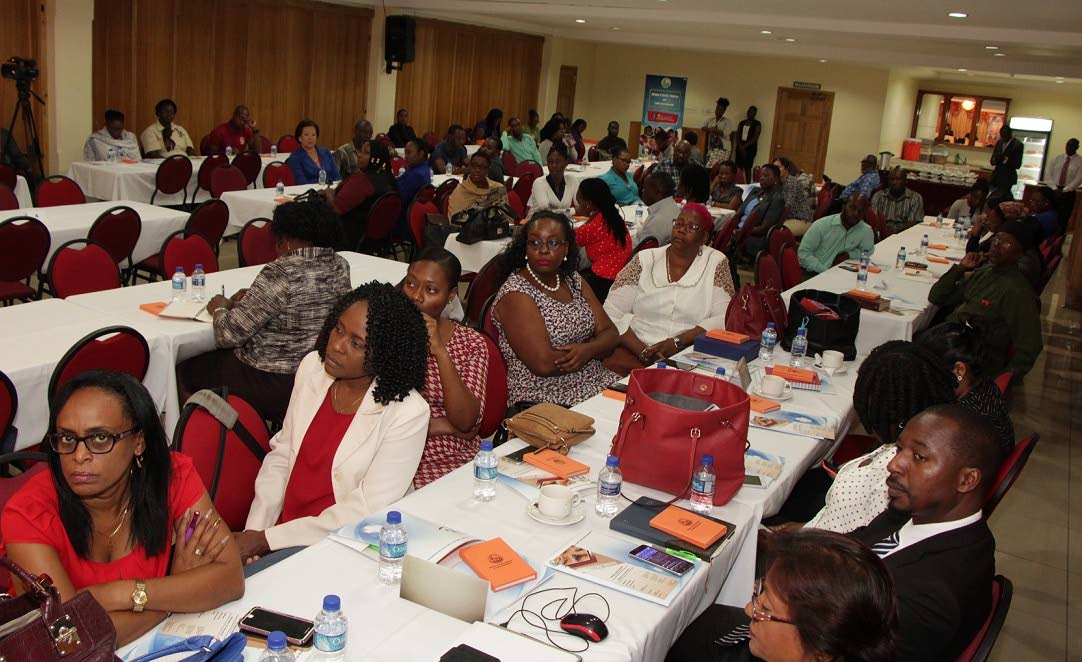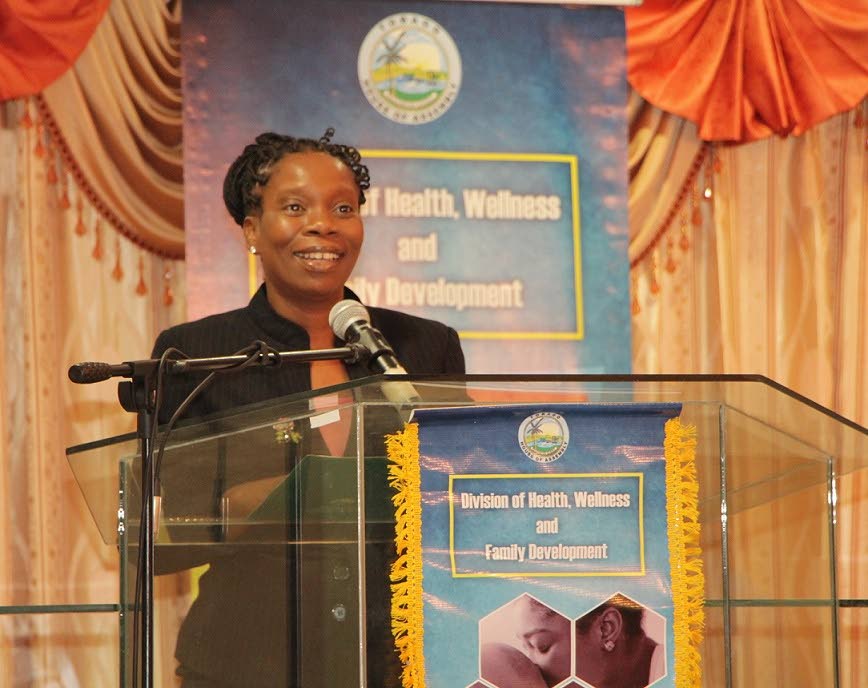Women face tougher challenges with substance abuse

The Alcohol and Drug Abuse Prevention Programme (ADAPP), Division of Health, hosted a Substance Abuse Symposium on June 26 to mark United Nation’s International Day against Drug Abuse and Illicit Trafficking.
With the theme, “Listen First: Listening to Children and Youth the First Step for Health, Growth and Development,” the Symposium focused on female substance abusers and their impact on the family - in keeping with the Division’s year-long agenda to mark International Women’s Day (March 8) and focus on and empower women to #PressforProgress.
In delivering remarks at the event held at the Tobago Nutrition Cooperative Society Limited in Canaan, Dianne Baker-Henry, Administrator, Division of Health, stressed on the need to support female substance abusers.
“Several women have been affected by the fatal consumption of drugs and it impacts their lives, and the lives of their children and family. It is important to raise awareness of this issue to avert children succumbing to it,” she said.
Baker-Henry said stress and lack of family support lead women to using drugs that then destroy their health, and by extension, the community.
She said she was a a first-hand witness to the effects of substance abuse on the individual, to the point that the person was unrecognisable by appearance and voice.
Billie Sterling-Lewis, Manager of ADAPP, encouraged healthy dialogue on the issue.
“Women face tougher challenges and outcomes in terms of substance abuse and it has been often overlooked and ignored (and we are) seeking to stop ignoring the obvious and have focused dialogue,” she said.
Esther Best, Manager of the National Drug Council, in brief greetings, commended the Division’s initiative to focus on such an issue and gave her commitment to provide support in any way possible.
Topics discussed at the symposium included Experiences of the Female Addict, Effects of Smoking and Alcohol on the Pregnant Woman, and Effective Approaches to Female Drug Rehabilitation and Treatment. Sharing her personal experience was Beverly Morson, Programme Director of Serenity Place Empowerment for Women, in Trinidad, who battled and overcame drug addiction.
Octavia Gale-Campbell, Programme Director of New Life Ministries Treatment and Rehabilitation Centre for Women in Trinidad, also discussed her trials with drug addiction.
“We need to separate adults from children for marketing alcohol. Do not allow children to sit in a bar while they (adults) drink alcohol. We need to fix legislation and enforce it. Sell it in a reasonable and ethical way to save the population from themselves,” said Gale-Campbell.
Natasha Stowe, Medical Social Worker at the Mt Hope Women’s Hospital spoke about the challenges faced by female addicts and the transferring of effects of alcohol and drug use from mother to child in the pregnant woman.
Hulsie Bhaggan, Clinical Director, New Life Ministries Drug Rehabilitation Centre, indicated that 90 percent of women who entered the facility over the last six years completed secondary school, 41 percent were employed and 27 percent came from dysfunctional families. She offered approaches in dealing with an addict or use in the home in order to facilitate help.




Comments
"Women face tougher challenges with substance abuse"